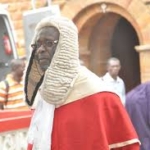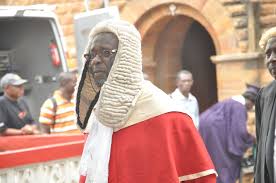
The Minority in Parliament has filed a motion urging the Speaker of Parliament, Rt. Hon. Alban Bagbin, to suspend the vetting of the newly nominated Chief Justice, Justice Paul Baffoe-Bonnie, until all legal issues surrounding the removal of former Chief Justice Gertrude Torkonoo are fully resolved in court.
According to the Minority, proceeding with the vetting process while the matter is still before the courts would amount to a breach of due process and could prejudice the outcome of the ongoing legal proceedings.
They argue that allowing the appointment process to continue may undermine public confidence in the judiciary and Parliament’s constitutional oversight role.
JoyNews Legal Affairs Correspondent, Kwaku Asante reported that the Minority Caucus say the motion, formally presented to the Speaker on Tuesday, calls for restraint and respect for the rule of law, insisting that the current situation raises constitutional and procedural concerns about the removal of a sitting Chief Justice.
Watch Kwaku Asante’s report on JoyFM’s Super Morning Show;
On Monday, October 27, the Minority Leader, Alexander Afenyo-Markin said that the minority will not boycott the vetting despite their strong disagreement with the process that led to the suspension of the immediate past Chief Justice, Gertrude Torkonoo.
He said this on PM Express, watch the video below;
Parliament’s Appointments Committee is expected to vet Justice Paul Baffoe-Bonnie on Monday, 10 November, following his nomination by the President to head the country’s judiciary after Chief Justice Gertrude Torkonoo was suspended on grounds of misconduct.
The legal battle
The suspended Chief Justice has since initiated several legal actions challenging her removal and is seeking justice through the courts, including Human Right Court in Accra and ECOWAS Court of Justice.
In July this year, the Human Rights Division of the High Court in Accra has dismissed a judicial review application filed by the suspended Chief Justice.
The court, presided over by Justice Kwame Amoako, was of the view that the application constitutes an abuse of court process and that it lacks jurisdiction to consider it.






